Our ICU is staffed by a multidisciplinary team of intensivists, anesthesiologists, and nurses who have specialized training to care for patients with life-threatening illnesses or injuries. These patients require close attention from our health care providers who use specialized equipment to support patient recovery, such as: vital activity monitors connected to a central monitoring unit, ventilators with different systems for different medical cases, infusion pumps -used to control the dosage of IV fluids and medicines administered to the patient- in addition to mobile devices like the portable ventilator, portable Holter monitor, and the mobile x-ray machine. These devices are utilized to avoid moving the patient across other departments for radiology or echo tests.
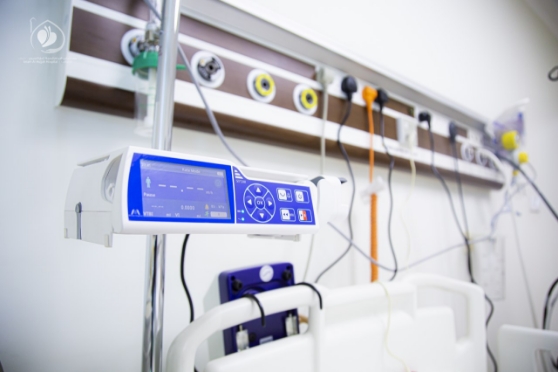
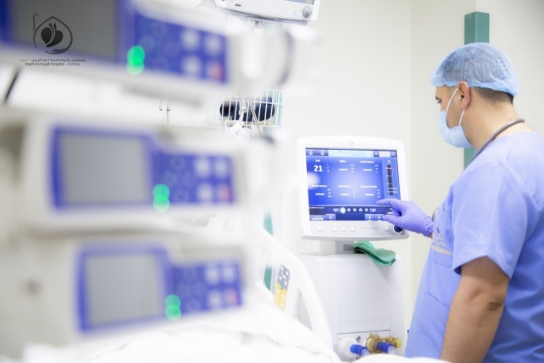
Long surgical procedures may lead to a delayed recovery, especially brain or spinal cord surgery, gastric sleeve for overweight patients, and major emergency surgeries.
Some disorders and injuries of the central nervous system may result in a loss of consciousness and loss of control over the respiratory tract leading to oral and stomach fluid accumulation in the respiratory tract.
In cases of brain and spinal cord injuries resulting from traffic accidents and strokes, the patient is connected to a tracheal tube to protect his lungs and to ensure safe artificial ventilation.
The ICU deals with common respiratory diseases such as chronic infections, pulmonary fibrosis, and acute asthma that require invasive artificial ventilation (tracheostomy) or non-invasive ventilation (using a CPAP machine) and other respiratory infections resulting from certain diseases such as advanced heart failure which leads to pulmonary congestion, and diseases of the muscles and peripheral nerves that cause respiratory failure.
What is the difference between the ICU and other wards in terms of medical and nursing care?
There’s a difference in terms of the type and quantity of nutrition given to patients with diabetes, and kidney and liver disorders.
The need for sedatives, anesthetics, or muscle relaxants -which aim to prevent stress during placement of the endotracheal tube or the ventilator- also differs from one patient to another.
Blood stasis may occur as a result of prolonged resting, which requires anticoagulation through changing the patient’s position, physiotherapy, anticoagulants, and the use of medical socks.
The ICU also deals with patients suffering from gastric acid secretions that cause stomach ulcers.
The ICU staff also makes sure to control blood sugar levels in diabetic and non-diabetic patients.

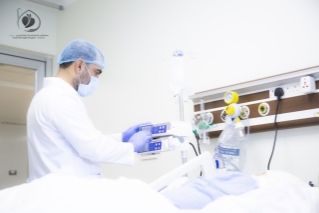
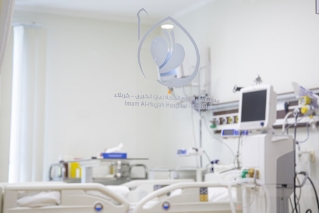
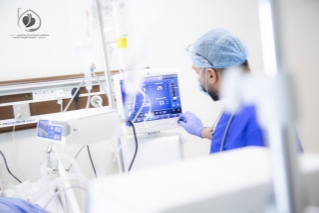
جميع الحقوق محفوظة لمستشفى الامام الحجة (عج) الخيري © 2023